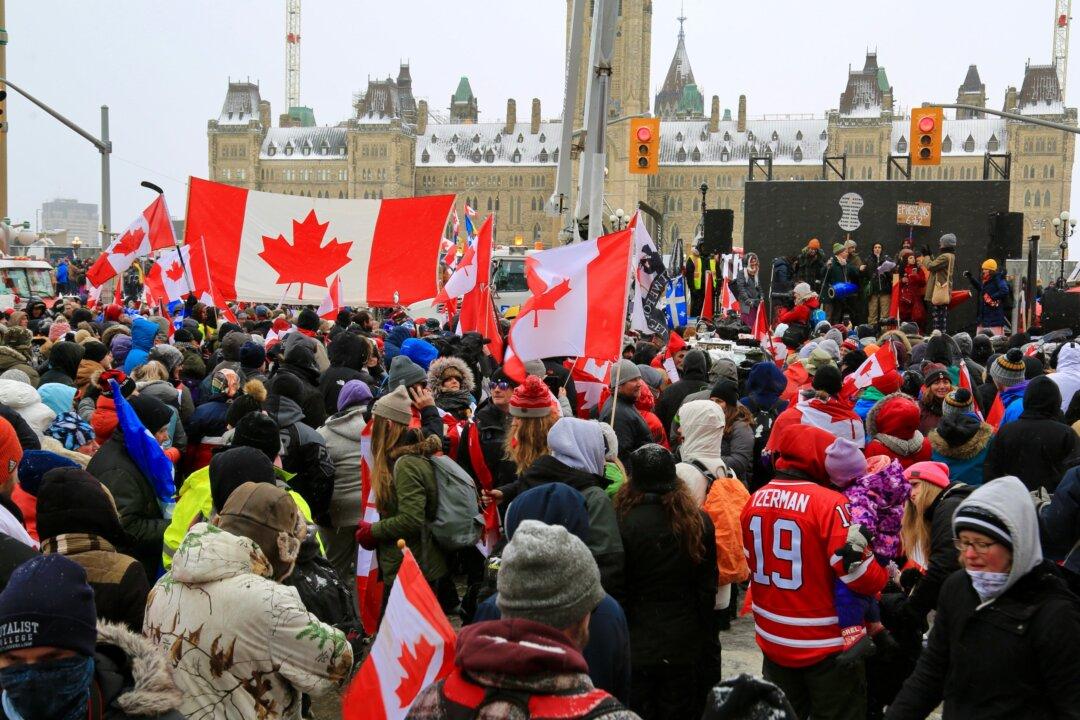Civil liberties groups and some law professors say the invoking of the Emergencies Act by Prime Minister Justin Trudeau to deal with ongoing mandate protests is on shaky ground and risks setting a dangerous precedent.
In a reaction to Trudeau’s announcement on Feb. 14, the Canadian Civil Liberties Association (CCLA) said the government “has not met the threshold necessary” to invoke the act, since the protests do not seriously threaten the ability of the government to “preserve the sovereignty, security and territorial integrity of Canada” as stated in the act.





